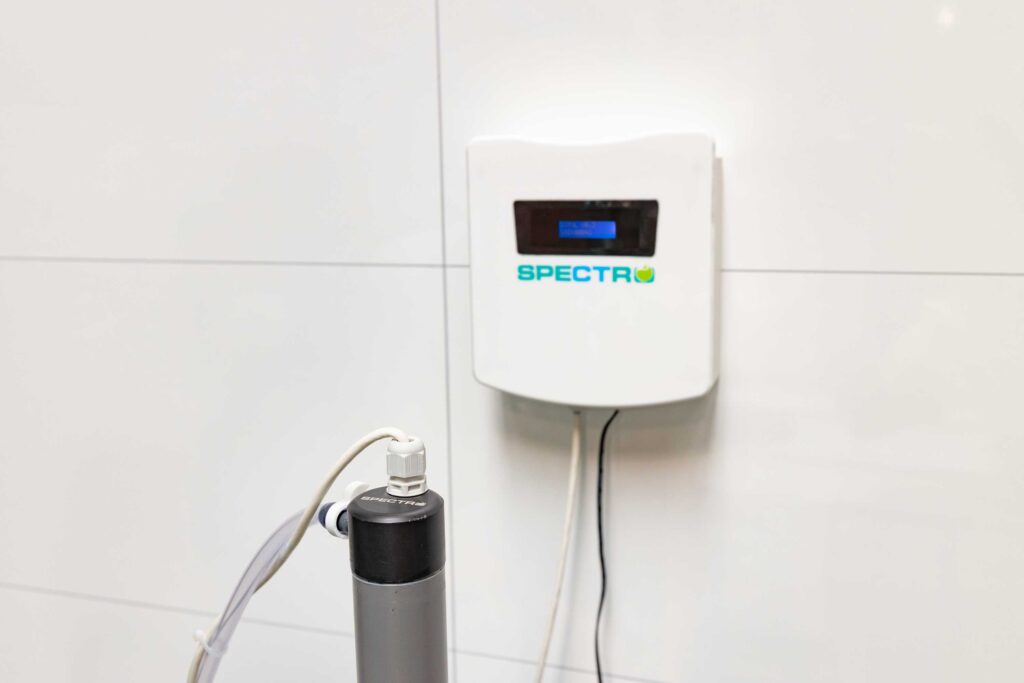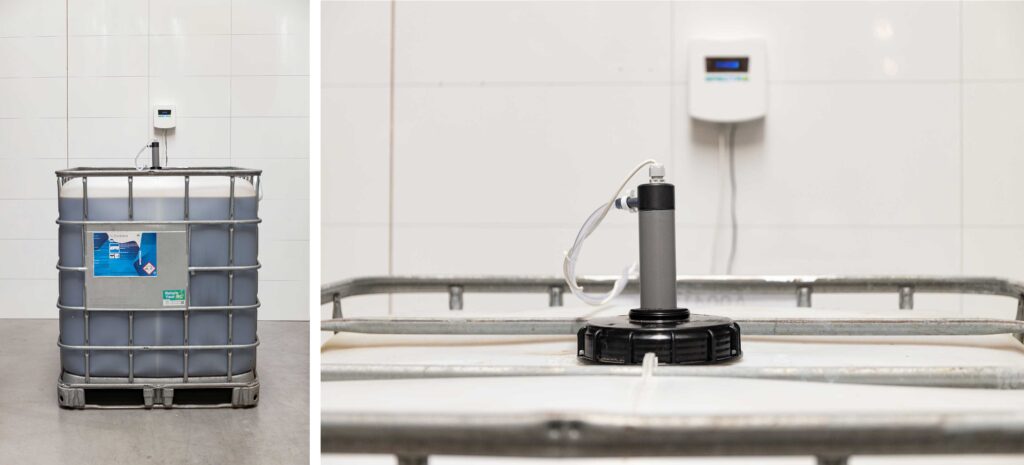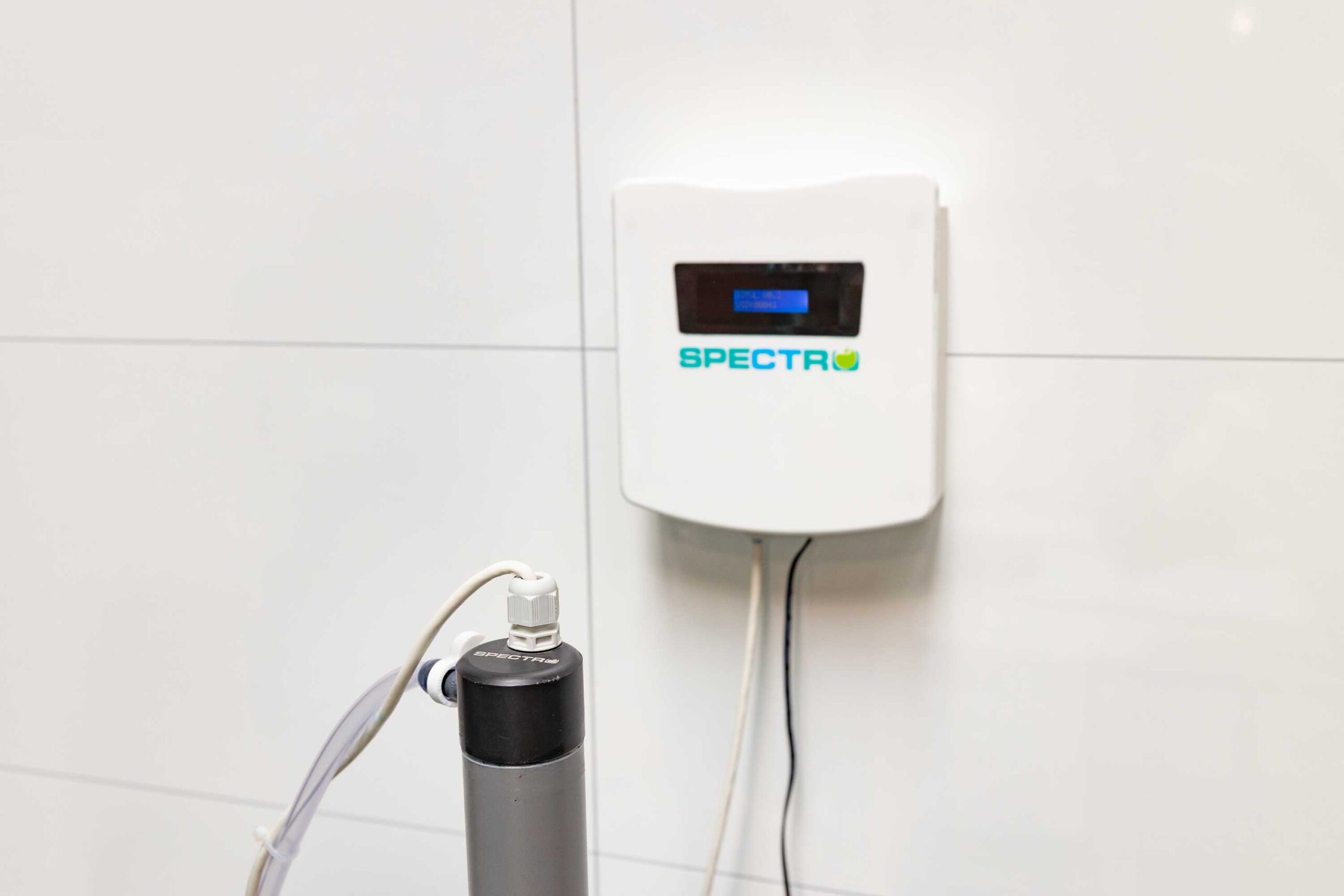Never have to order shampoo again for something like your truck wash? This can mean two things. Either business is going poorly, or you’re using Spectro’s empty-sensor detection. “With this, we completely relieve the customer. And ourselves a little as well,” says Car & Truckwash consultant Barend van den Boom.

We primarily use the empty-sensor detection for customers who use so-called IBCs: intermediate bulk containers. “These are containers with a capacity of 300, 600, or 1000 liters,” Barend explains. “Filled with products like shampoo for truck wash stations. Especially on busy days, the stock at such a location can deplete quickly. And you’ll always notice: you were just planning to place an order, but right in the middle of that busy weekend, you realize you’re out of stock…”
No more worries
That scenario is a thing of the past thanks to the empty-sensor detection. Barend explains: “Once the sensor in the IBC reaches a pre-agreed minimum level, a module with an internet connection automatically sends a signal. We then replace the empty IBC with a full one in time. In short, you don’t have to worry about it at all.”
“Thanks to the empty-sensor detection, you always have the right amount of cleaning product on hand.”
Always stocked
The empty-sensor detection prevents you from running out of cleaning products unexpectedly. But the benefit goes both ways, as overcapacity and overcrowded storage areas are also a thing of the past. “You always have the right amount of cleaning products on hand,” Barend nods. “Not too much, and not too little. The empty-sensor detection also benefits us: it brings calm and clarity to our planning. We always help our customers, no matter where they are. And we much prefer to do that in advance with a smart system, rather than during peak times when the need is urgent.”
Other sectors
We are also exploring which other sectors could benefit from the empty-sensor detection. For example, we’ve recently started with car washes and garages. Barend says: “Car washes often use multiple products in tanks of about sixty liters. Pre-cleaner, foam, drying agents, polish, and so on. As soon as employees manually refill those tanks, the empty-sensor detection signals the increased level. So, we know exactly when a customer has run out of stock.”
Measure to know
The first customers in the food industry are also using the system, and we continue to evaluate which other sectors could benefit from this solution. “Measuring is knowing,” says Barend. “Customers who use the empty-sensor detection are very satisfied. They’re no longer afraid of forgetting an order. In fact, they can forget it. Because we are guaranteed to think of them in the meantime.”


